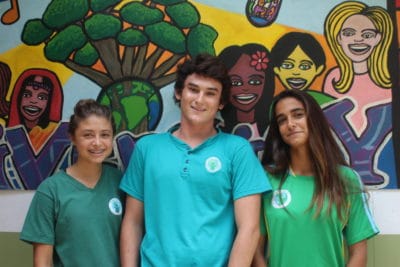November is often the time of year when, as we reflect, we take notice of what we have and express gratitude. This tradition is celebrated in the United States with the Thanksgiving holiday and is often part of the holiday season around the world as the harvest has been reaped and the year comes to an end. Often, we spend extra time with family and appreciate the people we have in our lives. Whatever the tradition, we can all benefit from the practice of expressing gratitude and appreciation. In fact, regardless of the season, research shows that this practice can be advantageous year round.
Of course other people in our lives feel good when we express gratitude to them but there are some excellent selfish benefits worth exploring as well. In his article, The Science of Happiness: Why complaining is literally killing you, Steven Parton explains how focusing on the positive aspects of your life can literally rewire your brain. We know from neuroscience that “neurons that fire together, wire together (Parton 2015).” In other words, the more particular connections are made in the brain, the more strength those connections have and the more likely it is that those same connections will be made again with more ease. As someone practices expressing gratitude and the more those connections are regularly made in the brain, it seems likely that they will generally have a positive outlook on life. The happier someone is, the more likely they will see opportunities as opposed to barriers as the inevitable challenges of life present themselves. Furthermore, the release of the stress hormone, cortisol, will decrease and allow for a better quality of life with less stress related health problems. Because we have a choice on where we put our focus, by choosing to regularly practice gratitude, we can increase our sense of well-being and level of satisfaction.
This is true in the school setting as well as illustrated in the Journal of School Psychology. Froh et al. (2008) demonstrated that “Counting blessings” in early adolescence can have positive impact on well-being and personal satisfaction. By simply making a daily list of 10 positive aspects of their lives, taking note of what they were thankful for, the adolescents in this study expressed higher levels of satisfaction in the school setting and life in general. They also responded more gratefully to help in school and where generally in a better mood than their counterparts (Froh et al. 2008). Similar findings have also been demonstrated with adults. So regardless of life’s setbacks, by choosing to be grateful for the positive aspects, people can mindfully have some control of their own experience and enjoy a sense of well-being. This is a valuable tool to teach our children and practice ourselves because there is so much to be grateful for!
References
Parton, Steven (2015). The Science of Happiness: Why complaining is literally killing you. Curious Apes. Available at: http://www.curiousapes.com/the-science-of-happiness-why-complaining-is-literally-killing-you/
Froh et al. (2008). Counting blessings in early adolescents: An experimental study of gratitude and subjective well-being. Journal of School Psychology 46 (2008) 213–233. Available at: http://greatergood.berkeley.edu/images/application_uploads/Froh-CountingBlessingsinAdolescents.pdf


